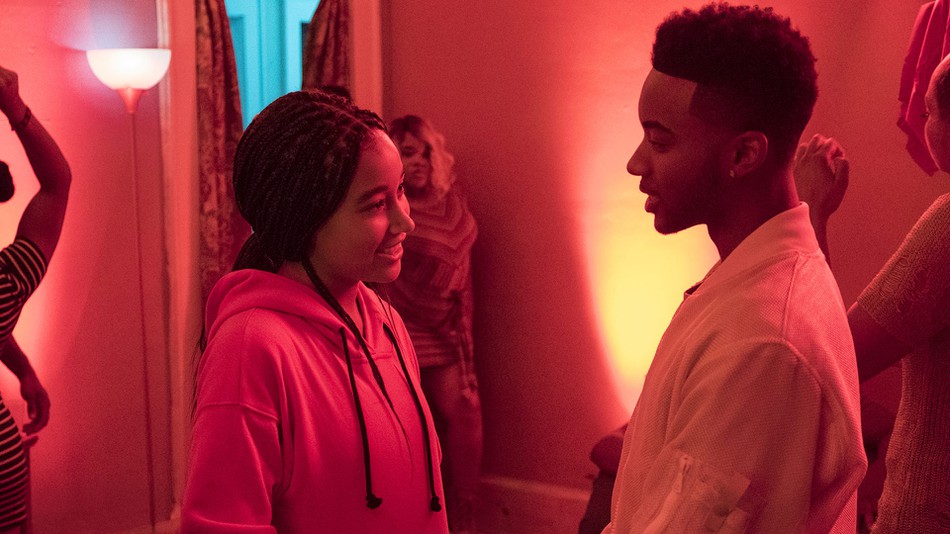In select Atlanta theaters now, “The Hate U Give” is a thought-provoking story that indirectly gives everyone an opportunity to share their voice. The film, based on the best-selling YA novel of the same name by Angie Thomas, is a refreshing new take on the issue of police brutality that has been occurring in America for many years.
Walking into the press screening, I was praying that I wasn’t going to watch another subpar movie about progressing the black movement that failed to break any new ground. I am ecstatic to announce that my prayers were answered. “The Hate U Give” is an innovative storytelling experience that focuses on giving the facts about the black narrative on police brutality, while also sharing the mic and giving other voices the opportunity to state their views on the topic at hand.
“The Hate U Give” follows a black south-side teen, Starr (played by Amandala Stenberg), and displays her daily life struggling to code switch at her esteemed predominantly white high school and her mostly poor, black neighborhood. One night after a party, she takes a ride with Khalil (played by actor Algee Smith), one of her old friends, and witnesses him being murdered at the hands of the police. From there it seems as if we are placed in the seats on a rollercoaster while watching Starr learn how to renavigate her life following the shooting.
Beyond the gorgeous cinematography, the impeccable soundtrack, featuring songs from Kendrick Lamar, Tupac and Travis Scott, and the unforgettable characters, “The Hate U Give” creates an innovative experience by adapting the movie for America — an audience that seems to butt heads on every topic these days — by giving each character in the movie their own voice and the ability to share their own opinions based on their own experiences.
This strategy works, because this movie kills the one-sided movie style and gives every moviegoer, no matter their age, race, gender or anything else, the ability to see themselves in the movie. For example, Starr’s uncle Carlos (played by Common) is a black police officer who feels torn about the situation. During a scene where he and Starr discuss the shooting, uncle Carlos communicates how he feels as a police officer in situations when he pulls people over. His part in the movie represents the voices of the officers and how they judge different events based on their experiences.
Another character in this movie that usually isn’t represented is the victim, Khalil. Khalil’s character speaks for the victims in situations of police brutality. Conveyed through the movie, we see more than just another casualty of police brutality. We see a person with opinions, feelings and dreams among many other qualities. Regardless of a character’s opinion or experiences, the movie makes all the characters human by giving everyone their own voice.
One of the best things “The Hate U Give” does is shows the flaws on all sides. Black people in this movie aren’t portrayed as just victims, and they aren’t shown as just gangstas — we see all sides of all characters, both the beautiful and the ugly.
“The Hate U Give” is the prototype for the future of social and political discussions throughout America and the world. The movie doesn’t just use its platform just to say “Black Lives Matter is the only message. Period!” It allows its viewers to see different messages that resonate with them and in whichever character they see themselves. Each person will take home a different message and learn something new that allows them to personally change for the better. The film and the novel borrow a title from the Tupac quote, “The Hate U Give Little Infants F**ks Everybody” (T.H.U.G. L.I.F.E.). But “The Hate U Give” is trying to prevent just that.
Taking me through a range of emotions, “The Hate U Give” is an emotional roller coaster for all the right reasons. Aside from a few occasional stale jokes and the clichéd high school scenes, overall, the movie delivers a story that truly everyone can relate to. It’s a film where the characters truly speak up for you, no matter who you are, and doesn’t just show stereotypical characters. It shows humans.
Jabari, a 16-year-old junior at Benjamin E. Banneker High School, is an avid moviegoer and enjoys having conversations about different social topics.




